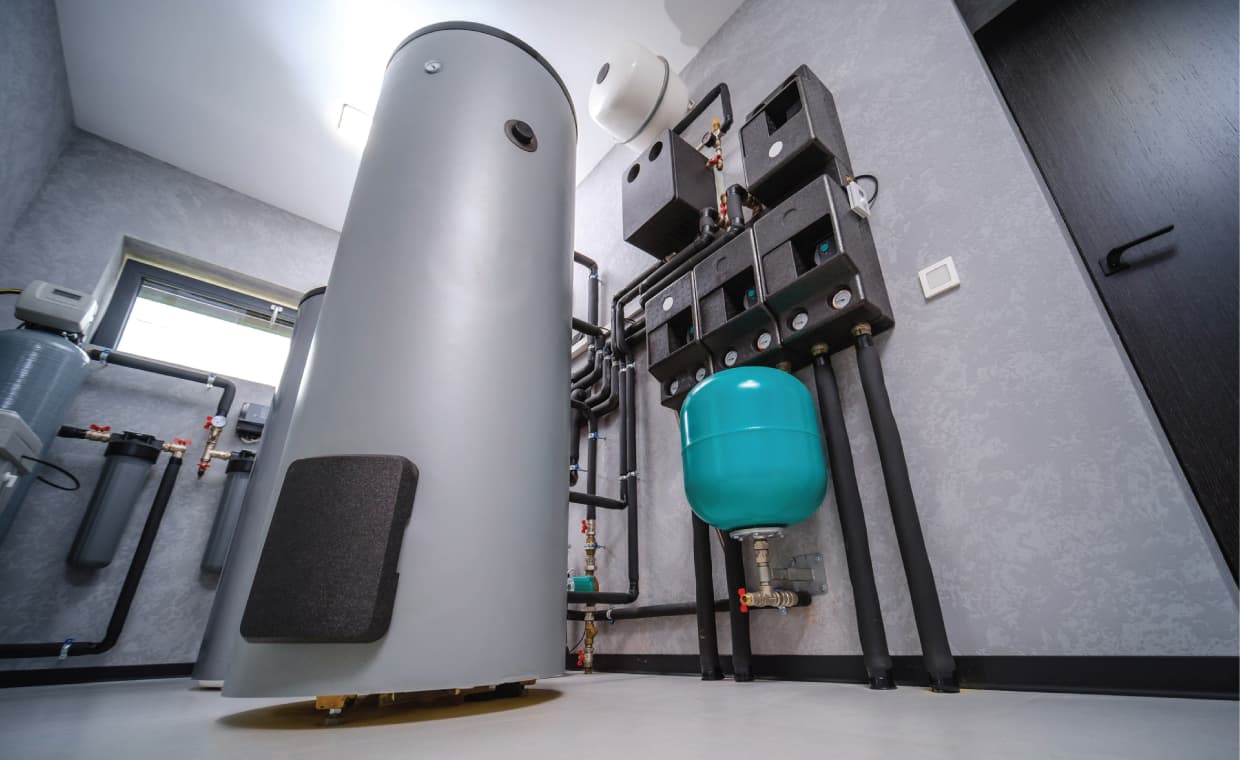
Hot water systems are essential components of modern households, providing the necessary warmth for showers, dishwashing, washing clothes, and more. While these systems are built to last, they aren’t immune to wear and tear. But how to know when hot water heater needs replacement? Knowing when it’s time to replace your hot water system can save you from unexpected cold showers, high energy bills, and potential damage to your home. Gharpedia brings you ten clear signs your hot water system needs replacement.
Signs Your Water Heater System Needs Replacement
Before its too late, watch out for these signs your water heater system needs replacement, to avoid any major damage.
01. Inconsistent Water Temperature

One of the first signs that your hot water system needs replacement is inconsistent water temperature. If you notice that the water isn’t as hot as it used to be or fluctuates between hot and cold, this could be a sign that the heating element or thermostat is failing. Over time, mineral deposits can build up around the heating components, causing inefficiencies.
02. Age of the System
The age of your hot water system is a significant factor in determining whether it needs to be replaced. Most systems last between 10-15 years. If yours is within this age range and starts showing other signs of trouble, it might be more cost-effective to replace rather than repair it. Check the manufacturer’s label to determine the age of your unit.
03. Rust and Corrosion

Rust and corrosion are clear indicators that your hot water system is deteriorating. This can appear in the water itself (rusty water) or on the tank and its components. While some parts can be replaced, extensive corrosion often means the entire unit needs to be replaced. Rust can cause leaks – another sign we’ll explore next.
04. Leaking Tank

A leaking tank is one of the most obvious signs your hot water system needs replacement. Leaks usually indicate that there is a significant failure in the tank, which can lead to water damage in your home. Temporary patch jobs might mitigate the issue for a while, but they are not a permanent solution.
05. Unusual Noises
If your hot water system makes unusual noises like banging, popping, or whining, it might be struggling with a build-up of sediment at the bottom of the tank. This sediment can cause the system to work harder, reducing its efficiency and lifespan. Flushing the tank can help but persistent noise is a sign that hot water system replacement is imminent.
06. Reduced Hot Water Supply
Another critical sign that your hot water system is failing is a reduced supply of hot water. If you find that you run out of hot water quicker than usual, it could mean that your tank is filling with sediment, reducing the amount of available hot water or that the heating element is failing.
07. Energy Bill Increases
A failing hot water system can become inefficient, causing an increase in your energy bills. If you notice a spike in energy costs without a corresponding increase in usage, your hot water system might be consuming more power to maintain the same level of output. Replacing it with a newer, more energy-efficient model can save you money in the long run.
08. Frequent Repairs

Needing frequent repairs is a clear sign that your hot water system’s lifespan is nearing its end. If you find yourself repeatedly calling a technician to fix various issues, it may be more cost-effective in the long run to replace the unit entirely. The cumulative cost of repairs can quickly add up to the price of a new system.
09. Water Quality Issues
Bad tasting or smelly water can also indicate issues with your hot water system. This could be caused by a breakdown in the tank’s internal components or bacterial growth inside the tank. If the water quality doesn’t improve with regular maintenance, it’s time to consider a replacement.
10. Visible Damage or Wear

Visible damage or wear to your hot water system, such as dents, cracks, or other deformities, are strong signals that a replacement is necessary. Such damages can compromise the integrity of the tank, leading to leaks and malfunctions that pose risks to your home and family.
Making the Right Decision
While some of these issues might be resolved with repairs, others are clear signs your hot water system needs replacement. Investing in a new hot water system might seem daunting, but the long-term benefits of energy efficiency, reliable performance, and peace of mind make it worth the initial cost. Newer models offer advanced features and increased reliability, making them a smart choice for any household.
For common water heater problems, read our below guide:






























